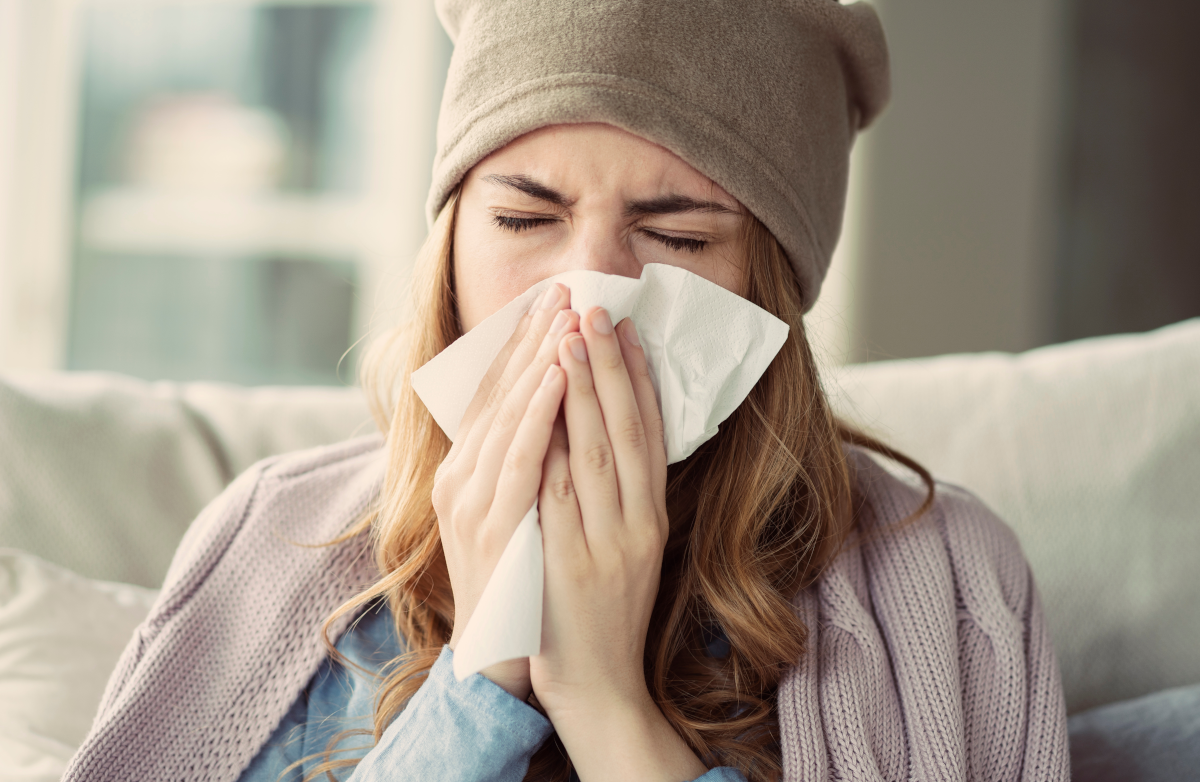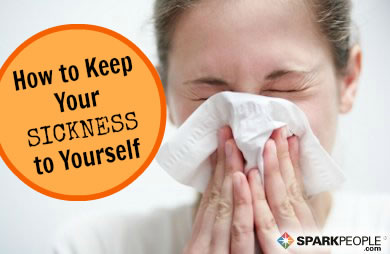
For much of the country, the winter season means snow boots and heavy coats, scraping ice off car windows, and battling cold and cough symptoms. With the amount of time spent indoors increasing in the colder months, it's not uncommon to come down with one of the dreaded cough, chills, runny nose, fever or sneezing viruses.
If you have a cold or cough, you may be able to treat your symptoms with some rest, relaxation, hot tea and Netflix and no antibiotics. However, for some, symptoms may be more severe and require a visit to your healthcare provider or local pharmacy. Whether you're on the struggle bus or just one that likes to be prepared, these questions will help you decide which cough and cold medication may be best.
Are you coughing up mucus?
If mucus is enemy number one, you need what is called an expectorant. An expectorant helps to thin the mucus so you can cough it up easier and be done coughing sooner. The medicine you are looking for is called guaifenesin and is the active ingredient in several over-the-counter cough medicines such as Mucinex®. It is also found in combination with other medications in other cough and cold medicines.
Are you trying to stop the cough?
Not coughing up as much mucus but still have an annoying cough? If so, a cough suppressant may be just what the doctor ordered. The most common is dextromethorphan, which is the active ingredient in several popular brands including Delsym® and Robitussin®. Some products use an expectorant and a cough suppressant together to help you clear the mucus and stop coughing faster. Before using a suppressant, remember that coughing is the body’s way of clearing harmful build-up from the lungs, so we don’t want to stop it completely. Instead, plan on taking cough suppressants just before bedtime, when coughing is interfering with sleep.
Does your throat hurt?
If your throat hurts from coughing, a cough drop may offer some temporary relief. Available in many flavors, cough drops coat the mouth and throat to ease the sore feeling and relieve the cough. Sugar-free options may be best to avoid excess calories and sugar.
Do you have a fever?
A fever occurs when your body temperature rises to help fight off germs in your system. A fever is when your temperature is 100.4 degrees or higher. If you have a thermometer at home, check your temperature when you are feeling warm. If your temperature is higher than 103 degrees, you must seek emergency treatment.
Fevers can be treated with over the counter medicines such as acetaminophen (Tylenol®) or ibuprofen. Acetaminophen typically comes in 325 milligram (mg) regular tablets or 500 mg extra strength tablets. You can take one to two tablets every six hours for fever, as long as you do not exceed 3000 mg total in 24 hours. If you prefer ibuprofen, you can take 200 to 400 mg every six hours, but do not exceed 1200 mg in 24 hours. Always check with your provider before taking acetaminophen or ibuprofen, as some people with certain conditions cannot take these. Consult your medical provider if you have a fever lasting longer than three days or if your fever is accompanied by headache, abdominal pain or painful urination.
Do you have congestion?
If you have sinus pressure or congestion that feels like you can’t breath out of your nose, you may need a decongestant. Pseudoephedrine, such as Sudafed®, must be purchased behind the counter, which means you don’t need a prescription but you do have to ask the pharmacy staff for this medication and provide your driver’s license to be able to buy. This medication cannot be used by people with heart conditions, including high blood pressure. There are some heart safe versions such as Coricidin®, but it's best to consult your provider before taking medication.
Do you have a runny nose?
Many cough and cold medications include antihistamines, like diphenhydramine (Benadryl®) or other over-the-counter medications typically used for allergies. These medications work by drying up your runny nose, helping stop any itching, while typically making you feel tired. Many cough and cold products contain an antihistamine because they will help you fall asleep.
There are many different products sold at your local pharmacy to help with cough and cold symptoms, and many will contain a combination of the medicines mentioned above. For example, the popular medicine Nyquil® contains a cough suppressant, an antihistamine and acetaminophen for pain and fever. These combination products can be great for all-in-one relief, but be careful when combining with other products to avoid duplications! Always read the back of the bottle or box to find out exactly what ingredients are included, and consult a pharmacist if you need help deciphering the label.













